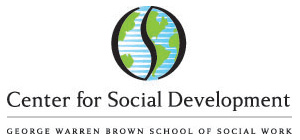Today, the New America Foundation and Center for Social Development (CSD) at Washington University in St. Louis announced a new College Savings Initiative to examine and improve “529” college savings plans so more people have the opportunity to attend and complete college.
“This initiative couldn’t be more timely,” said Ray Boshara, Vice President of Domestic Policy Programs at New America. “Vice President Biden recently said the Obama administration was committed to improving 529s to help achieve college affordability and completion, and President Obama has called for Americans to ‘move from an era of borrow and spend to one where we save and invest.'”

State-sponsored 529 college savings plans were established to encourage families to save money for postsecondary education. Money contributed to these plans grows free from federal and state taxes, and contributions are tax deductible in most states. Unfortunately, 529s have yet to reach their full potential for low- and moderate-income families who have the most difficulty saving for their children’s education. In other words, those who face the most barriers to sending their children to college receive the fewest 529 benefits.
“Saving money is not easy, but research shows many people can save when they have incentives and a way to do so. More low-income families may save with well-designed 529s and incentives,” said Margaret Clancy, Policy Director at CSD. “We will study 529 innovations to see which ones are effective. This will inform 529 policy so that it can benefit families of all income levels.”
“I’ve learned that if families are not preparing for college financially, then they’re probably not preparing in other ways as well. That’s one of the reasons 529s are exciting — they focus both the mind and money on college.” said Jacqueline T. Williams, the newly named Director of the College Savings Initiative at New America.
“Research indicates that saving and asset holding are associated with educational achievement,” confirmed Michael Sherraden, Professor and Director of CSD. “There is evidence that savings for college may focus attention of parents and children on post-secondary education, affecting their outlook, orientation, course selection, discipline, and academic achievement.”
Currently, some states have established programs to better include lower- and moderate-income families in 529 plans — including outreach, initial deposits, matching deposits, low fees, setting up 529s at birth. In Maine, a philanthropist has bequeathed money to set up a 529 plan for every newborn.
“Structured and invested properly, 529s hold enormous, un-tapped potential to get more students, especially those least likely headed to college, on a path to attend and complete college,” said Boshara.
The College Savings Initiative will examine a number of new ideas including how 529s might connect to federal tax and student aid policies. The initiative will also study the potential to automatically open a 529 for every child when they enroll in kindergarten, to enable them to save and think about college from an early age.
“In the United Kingdom, all children now start their lives with a savings account in the Child Trust Fund,” said Sherraden. “If college savings research continues to be promising, perhaps the United States will consider a similar policy.”
The College Savings Initiative is a joint initiative of the Asset Building and Education Policy Programs of the New America Foundation and the Center for Social Development (CSD) at Washington University in St. Louis. It is funded by the Lumina Foundation for Education and the Bill & Melinda Gates Foundation.
529s were created by the Internal Revenue Code 529 as a tax-advantaged savings tool for post-secondary education. States administer 529 plans, and accounts may be used at any eligible educational institution, including public and private colleges and universities, graduate and post-graduate schools, community colleges, and certain proprietary and vocational schools. At the end of 2008, there were 8.8 million 529 accounts in the United States, with some $88.5 billion in total assets.
For more information on the College Savings Initiative, please visit http://collegesavingsinitiative.org.
About the New America Foundation
New America Foundation is a nonprofit, nonpartisan public policy institute that invests in new thinkers and new ideas to address the next generation of challenges facing the United States.
About the Center for Social Development at Washington University in St. Louis
CSD’s mission is to create and study innovations in public policy that enable individuals, families, and communities to formulate and achieve life goals, and contribute to the economy and society.
About the Bill & Melinda Gates Foundation
Guided by the belief that every life has equal value, the Bill & Melinda Gates Foundation works to help all people lead healthy, productive lives. In developing countries, it focuses on improving people’s health and giving them the chance to lift themselves out of hunger and extreme poverty. In the United States, it seeks to ensure that all people —especially those with the fewest resources — have access to the opportunities they need to succeed in school and life. Based in Seattle, Washington, the foundation is led by CEO Jeff Raikes and Co-chair William H. Gates Sr., under the direction of Bill and Melinda Gates and Warren Buffett.
About Lumina Foundation
Lumina Foundation for Education, an Indianapolis-based private foundation, strives to help people achieve their potential by expanding access to and success in education beyond high school. Through grants for research, innovation, communication and evaluation, as well as policy education and leadership development, Lumina Foundation addresses issues that affect access and educational attainment among all students, especially underserved student groups such as minorities, students from low-income families, first-time college-goers and working adults. The Foundation believes postsecondary education is one of the most beneficial investments individuals can make in themselves and that a society can make in its people.